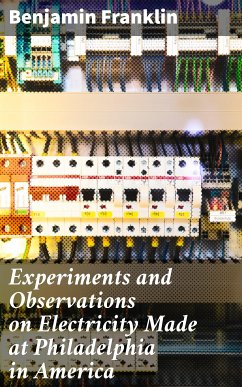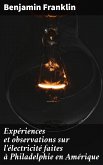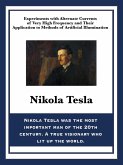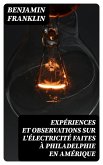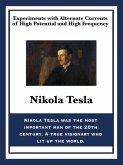In "Experiments and Observations on Electricity Made at Philadelphia in America," Benjamin Franklin presents a groundbreaking exploration of electrical phenomena through a series of experiments that fuse empirical scientific inquiry with an engaging narrative style. Written during the Enlightenment, a period characterized by a burgeoning interest in science and rational thought, Franklin's work employs meticulous observation and experimentation to demystify electricity, challenging existing theories and establishing foundational principles that would influence future scientific discourse. The epistolary format, enriched by personal anecdotes, provides both clarity and accessibility, making complex concepts approachable for readers of varying backgrounds. Franklin, a polymath and one of the Founding Fathers of the United States, was profoundly influenced by the scientific advancements of his time and his own diverse experiences as a writer, inventor, and diplomat. His self-taught background and pragmatic approach to knowledge fostered a relentless curiosity that drove him to investigate the forces of nature, particularly electricity. Franklin's intrinsic desire to serve both his community and the scientific community inspired him to publish his findings in order to disseminate knowledge and encourage further inquiry. I highly recommend "Experiments and Observations on Electricity" to anyone interested in the origins of modern science, the interplay between experimentation and theoretical understanding, or the remarkable life of Franklin himself. This influential work not only chronicles an important chapter in scientific history but also invites readers to marvel at the wonders of the natural world through the eyes of one of its most perceptive observers. In this enriched edition, we have carefully created added value for your reading experience: - A succinct Introduction situates the work's timeless appeal and themes. - The Synopsis outlines the central plot, highlighting key developments without spoiling critical twists. - A detailed Historical Context immerses you in the era's events and influences that shaped the writing. - An Author Biography reveals milestones in the author's life, illuminating the personal insights behind the text. - A thorough Analysis dissects symbols, motifs, and character arcs to unearth underlying meanings. - Reflection questions prompt you to engage personally with the work's messages, connecting them to modern life. - Hand-picked Memorable Quotes shine a spotlight on moments of literary brilliance. - Interactive footnotes clarify unusual references, historical allusions, and archaic phrases for an effortless, more informed read.
Dieser Download kann aus rechtlichen Gründen nur mit Rechnungsadresse in A, B, BG, CY, CZ, D, DK, EW, E, FIN, F, GR, H, IRL, I, LT, L, LR, M, NL, PL, P, R, S, SLO, SK ausgeliefert werden.

